VW ID Buzz GTX Review: A Good Car, But Not The Best Buzz

Pros
- Strikes a great balance between practicality and desirabilityQuick off the line
Cons
- Sporty positioning doesn’t carry over to the driving experienceDoesn’t really do anything better than the single-motor Buzz
We’re not entirely sure the first thing the Volkswagen ID Buzz needed was 335bhp, but that’s what it’s got in the form of this new GTX version. GTX, you might recall, is VW’s performance-ish, luxury-ish range-topping trim for its ID family of electric cars – all of which share a platform with the Buzz – and you’ll find it on everything from the Golf-sized ID3 to the aero-Passat that is the ID7.
Slapping it on what’s effectively a van with seats, though, and throwing punchy sports car power levels at it, risks creating something that’s a bit of a discordant mess. Does the Buzz GTX fall into that trap, or does it actually make sense?
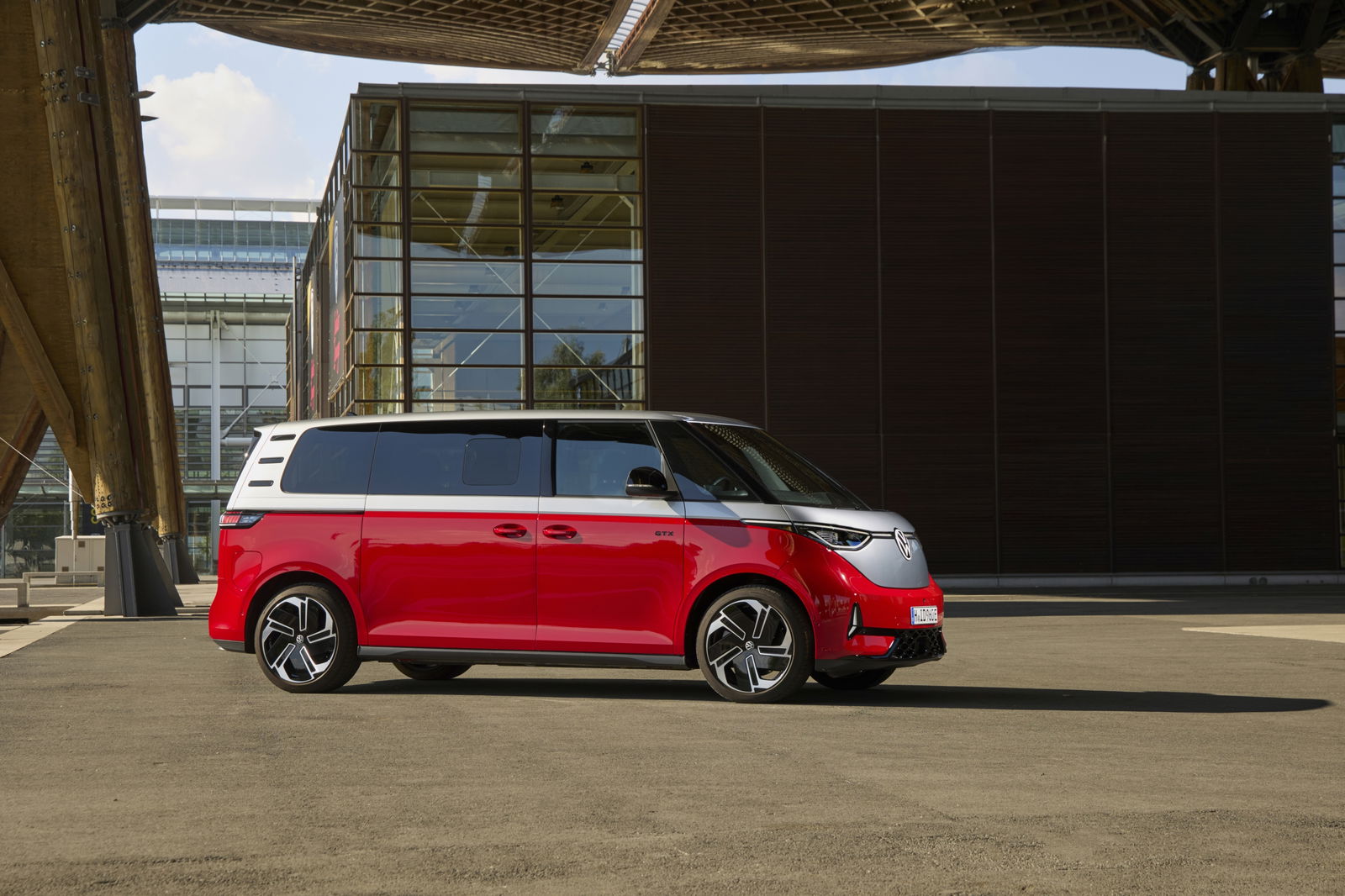
The first step is positive because that power hike comes courtesy of a second electric motor on the front axle of the previously rear-drive-only Buzz. That 335bhp, together with 413lb ft of torque, sends the GTX off to 62mph in a hot-hatch-bothering 6.1 seconds. VW quotes a limited top speed of 99mph, but on a stretch of unlimited Autobahn, we clocked 165kph – 103mph – on the readout.
While the GTX badge ostensibly represents performance, VW also reckons this dual-motor, four-wheel drive setup will appeal to those who live in wintry climes like the Alps or those who plan to tow with their Buzz (hauling capacity goes from 1000 to 1800kg). The same powertrain will eventually arrive on the actually-a-van ID Buzz Cargo.
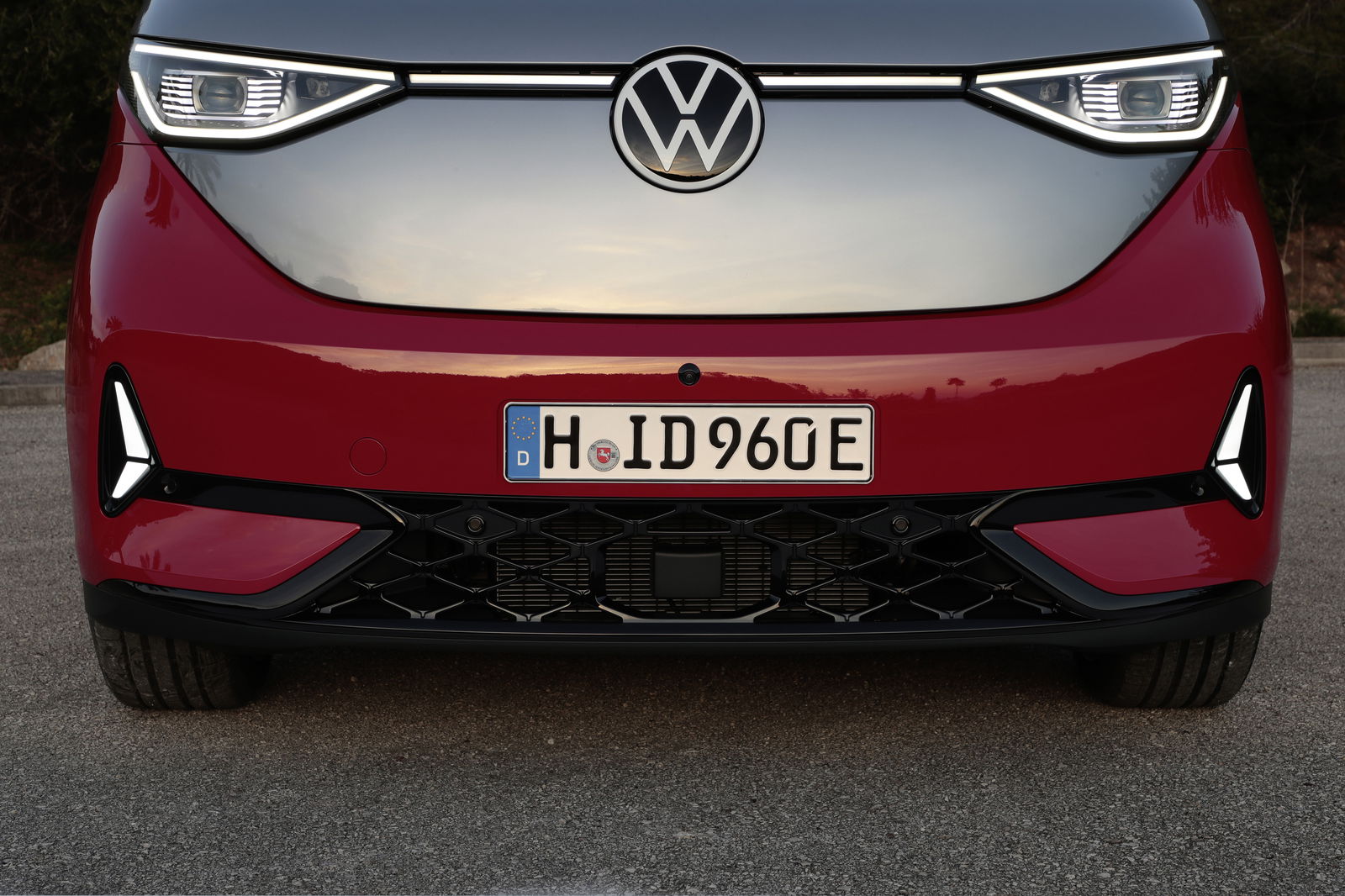
The GTX has arrived in tandem with a long-wheelbase version of the Buzz, which offers seven seats for the first time. Originally, the UK was only due to get the GTX in five-seater form, but it seems VW has had a change of heart, and both are now heading here.
That means a 79kWh battery, a slight increase over the base car’s 77kWh (although it'll soon become standard across the Buzz range). While the range figure is still awaiting homologation, we wouldn’t be surprised to see that extra capacity offset by the weight and power increase, and the GTX end up with a similar official figure to the basic Buzz’s 250 miles. We were managing to use around 23kWh of energy every 100 kilometres, a reasonable number for a big, powerful bus like this.
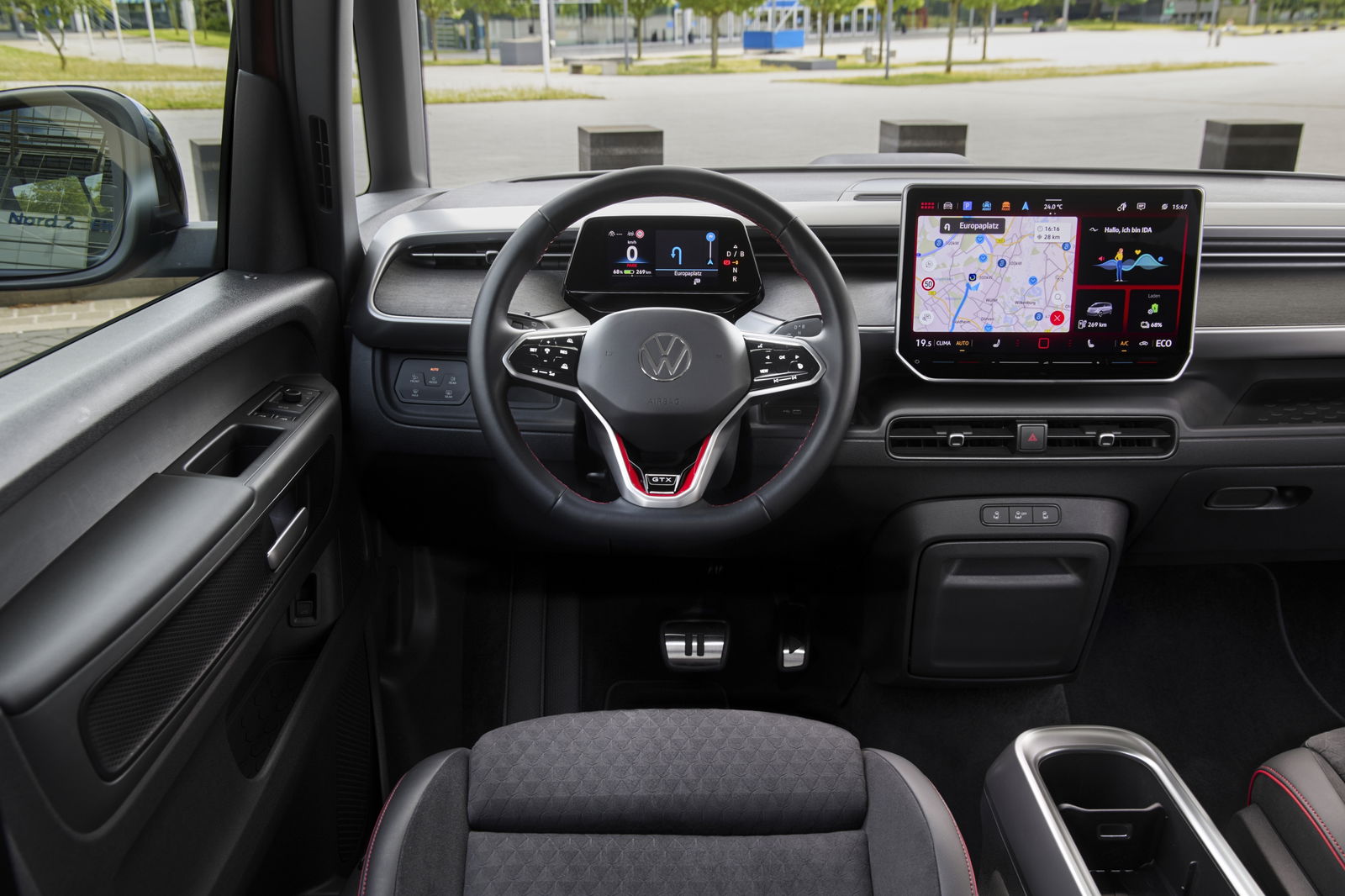
You can tell the GTX apart on the outside by a tweaked front bumper, the standard fit 21-inch alloys and, if it’s anything like the launch spec, the Cherry Red paint, which is GTX-exclusive. Inside, meanwhile, it’s a case of lots of black fabric and red accents.
Despite its extra grunt, the GTX doesn’t feel all that quick. Sure, it surges forward with a definite urgency like all reasonably powerful EVs do, and there’s certainly potential to surprise a few unsuspecting sports cars away from the lights. It’s not going to be an unlikely drag race hero, though.
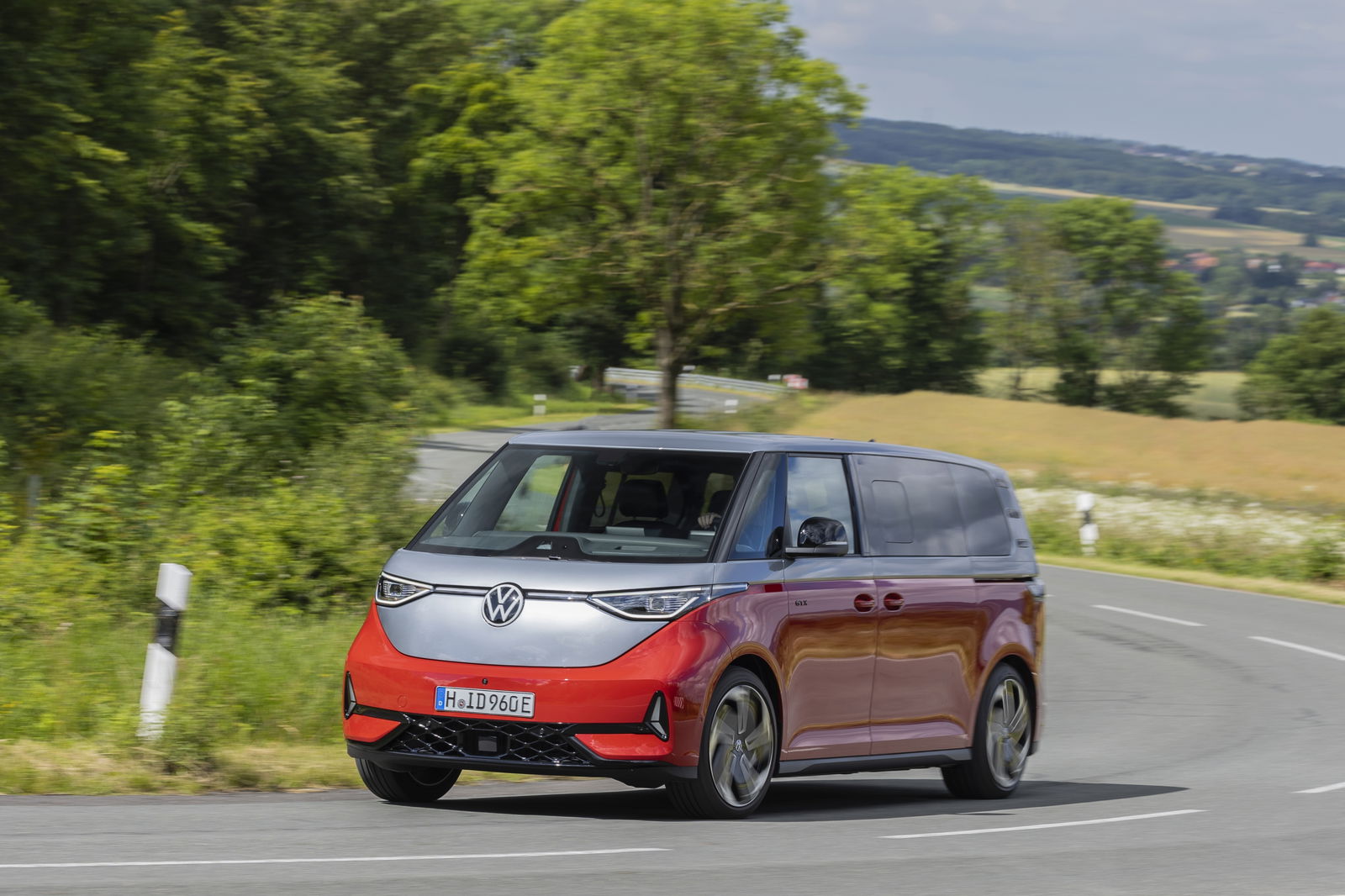
Equally, it’s no revelation in the corners. With four-wheel drive and most of its weight sat low down, it grips keenly and corners impressively neutrally, but this is still essentially a van, and one that weighs 2425kg. The steering is accurate and has a nice weight to it, but is otherwise lifeless, and the GTX will quickly push into squealy understeer.
The badge makes far more sense if you look at it not as a performance offering, but as a more luxurious choice that sweetens the deal with a bit of extra shove. The interior tries to emphasise this with its posh ‘microfleece’ upholstery and moody black ‘n’ red ambience. In fact, it risks being a bit too dark and brooding in here, but you can spec a gigantic panoramic roof to splash more light on things.
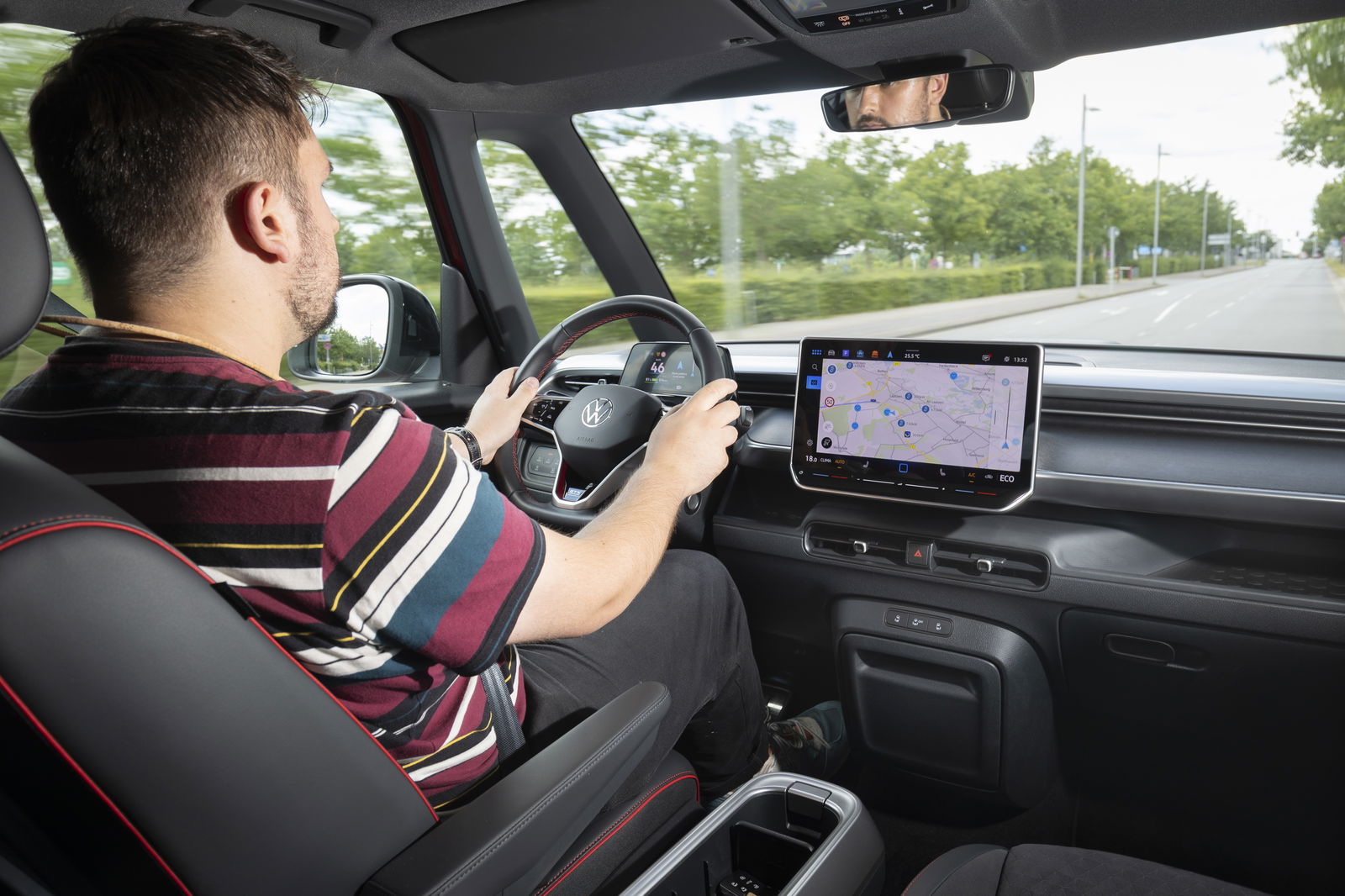
The rest of the inside, though, is like that of the regular Buzz – that is to say, rather lovely. You get a commanding driving position and brilliant visibility (once again, this is basically a van) and VW has given the previously half-hearted infotainment system a light but welcome overhaul.
The steering wheel has proper, clickable buttons, and the haptic sliders at the bottom of the 12.9-inch screen are now mercifully backlit. The screen itself is simpler to navigate, with lots of shortcuts for the stuff you’ll want regularly. It’s still not class-leading, but it’s a whole lot better than what came before.
Some of the materials – particularly the wood-effect stuff that covers the dash – do feel a bit tinny, but it’s overall a deeply pleasant place in which to cover miles. It’s a superbly insulated and calming environment with big, comfy captain’s chairs up front, and its ride rarely gets crashy or jarring, despite the GTX’s weight and 21-inch rims.
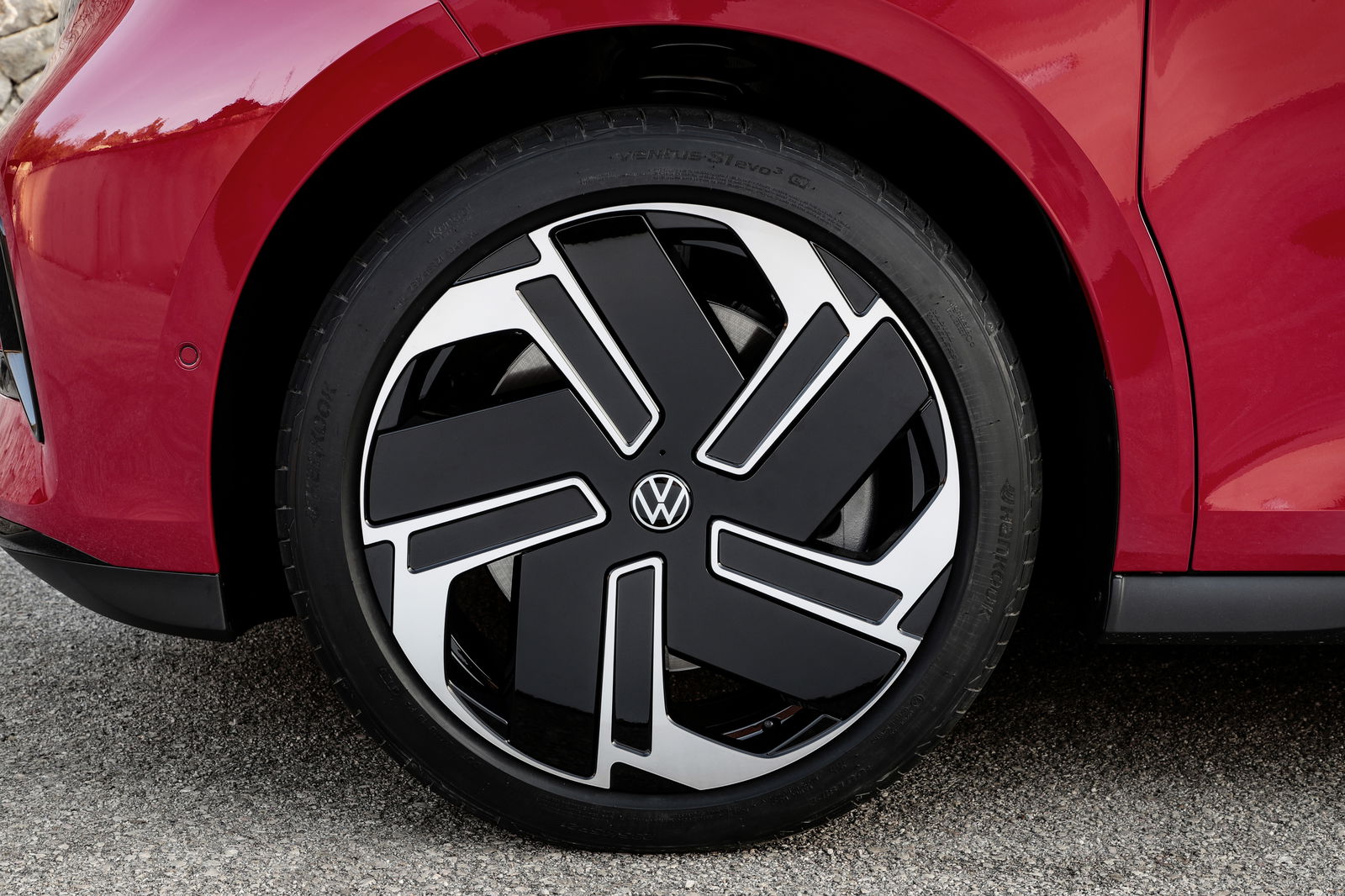
At motorway speeds, the absence of any engine drone and the Buzz’s slabby shape do make wind noise more noticeable, but not horrendously so. VW’s adaptive cruise control isn’t the easiest to fathom, either.
How much will all this cost? Well, we don’t know yet. The previous range-topping standard-wheelbase Buzz, the Style, starts at £63,835. The GTX, meanwhile, jumps up to £67,435, with the seven-seater coming in at £67,945.
Is it worth this potential jump? We’re not so sure. Single-motor Buzzs in Europe have just had their original, slightly underpowered 201bhp motor replaced with a much more suitable 282bhp unit. That, along with the bigger battery, will soon make its way to the UK too.
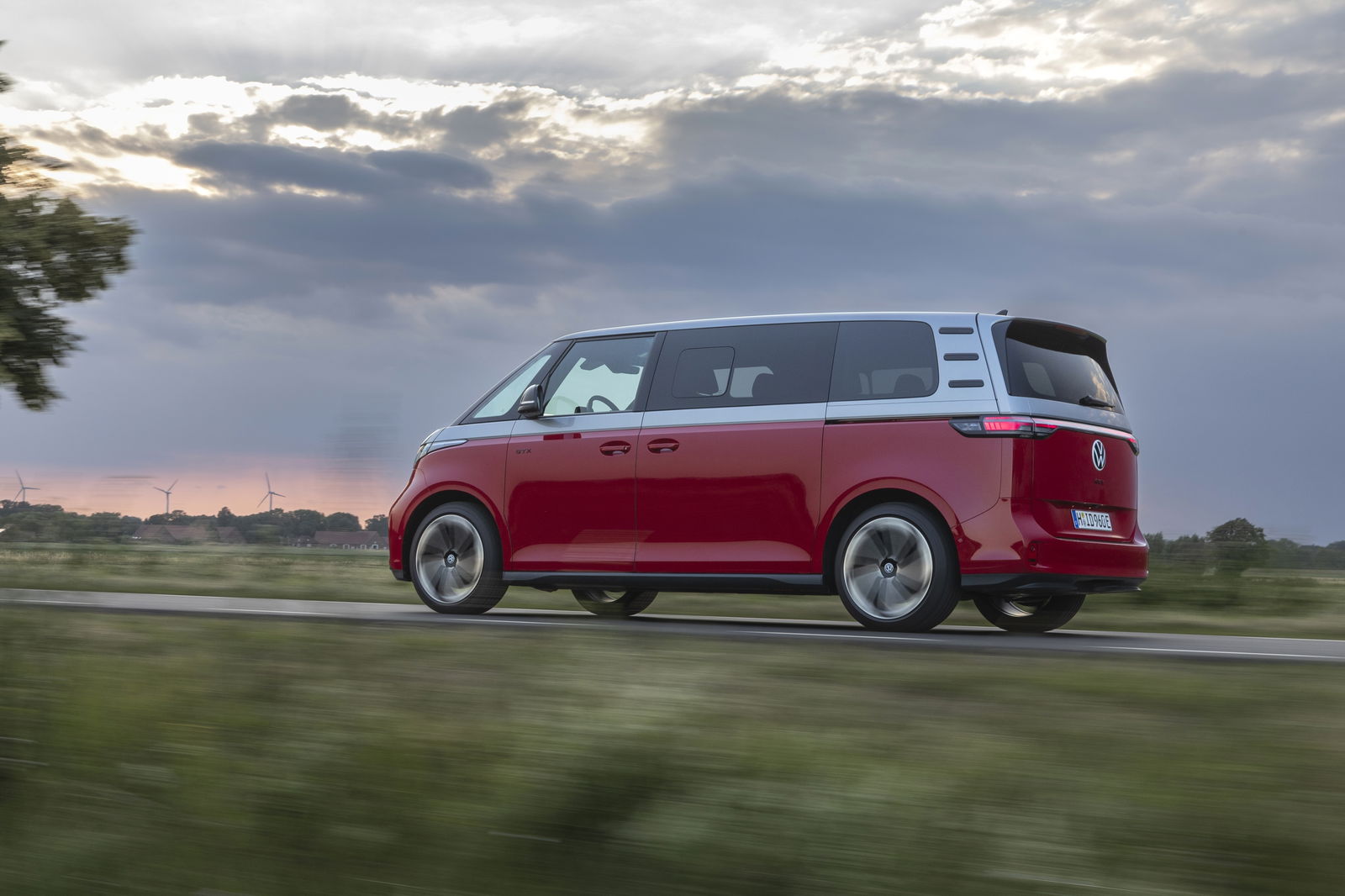
Having sampled that new motor on the same trip, the GTX’s extra accelerative potential really isn’t that noticeable. Meanwhile, anyone buying a car like this expecting a Golf GTI-matching drive probably needs to take a good long look at themselves, ‘sporty’ badge or not. Then there’s the inside which is just as comfortable and roomy as the standard car but doesn’t feel as bright or friendly. Equipment levels are very similar between the GTX and Style, too.
The GTX does nothing worse than lesser Buzzs, and that means it remains a rare thing: a hugely practical family wagon that still has absolute bags of character. The thing is, it doesn’t really do anything better either. The ID Buzz is a superb car/van/thing, but unless you’re one of those people that tows a caravan to Val d’Isère every January, the GTX probably isn’t the one to go for.
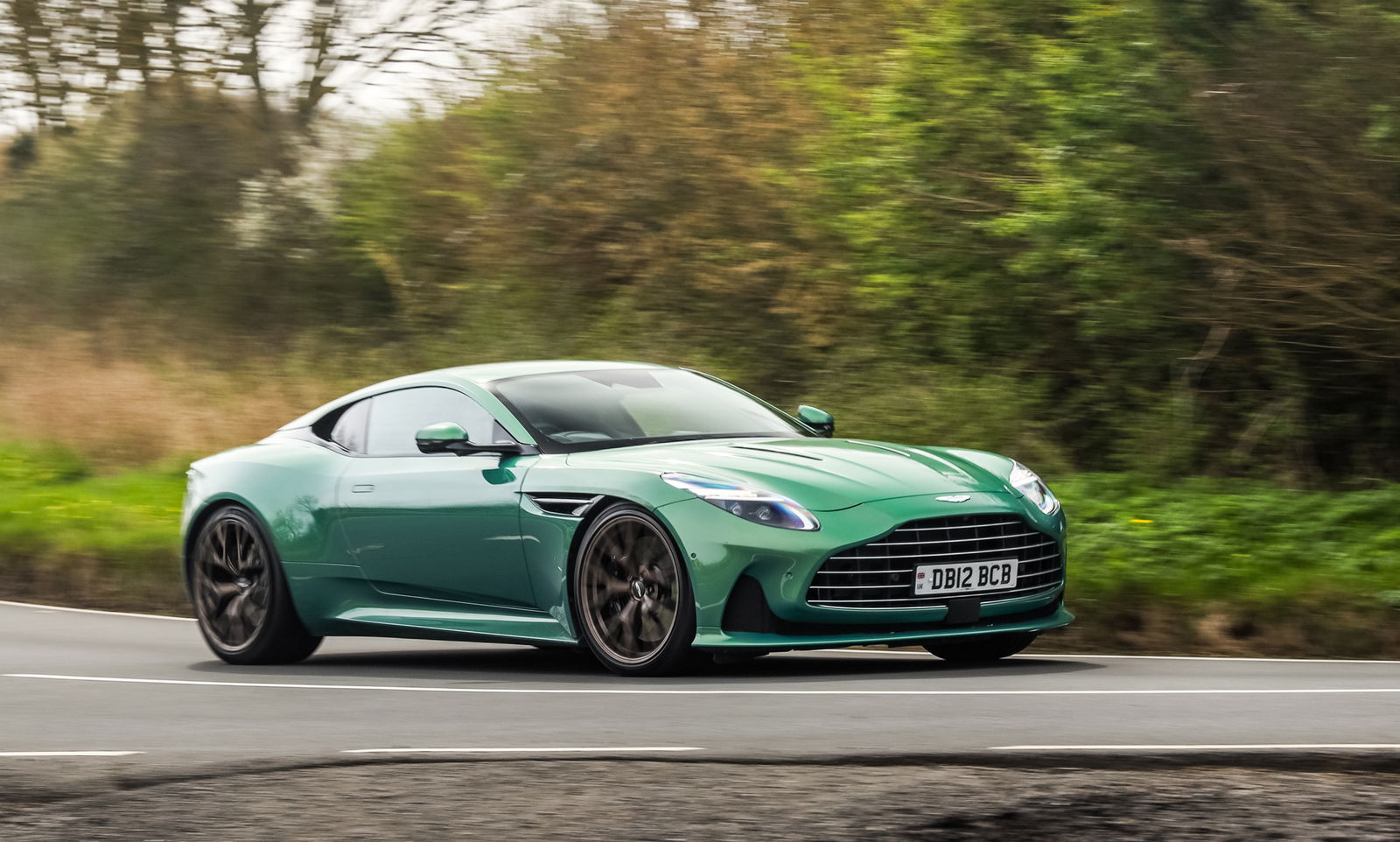
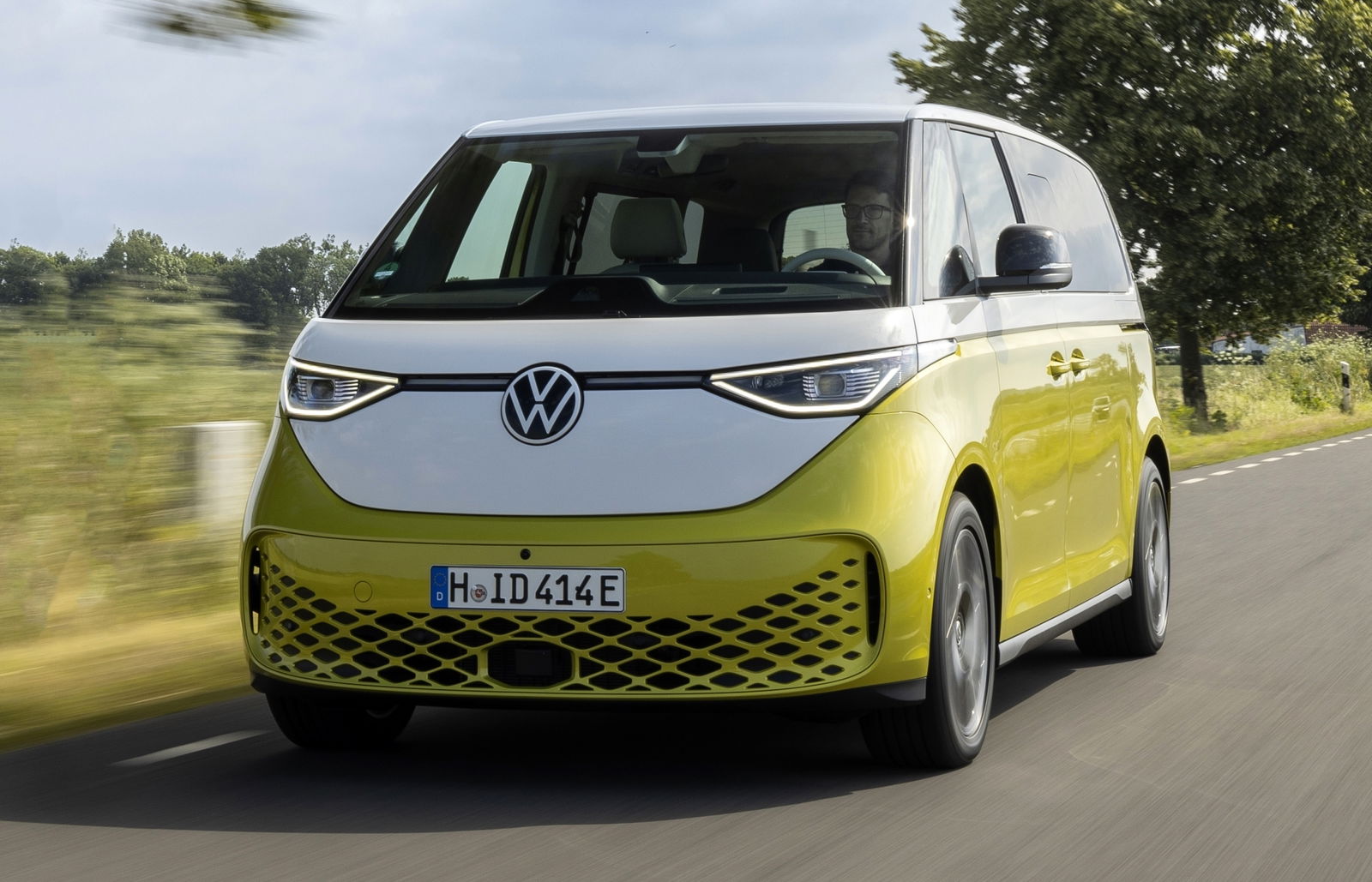

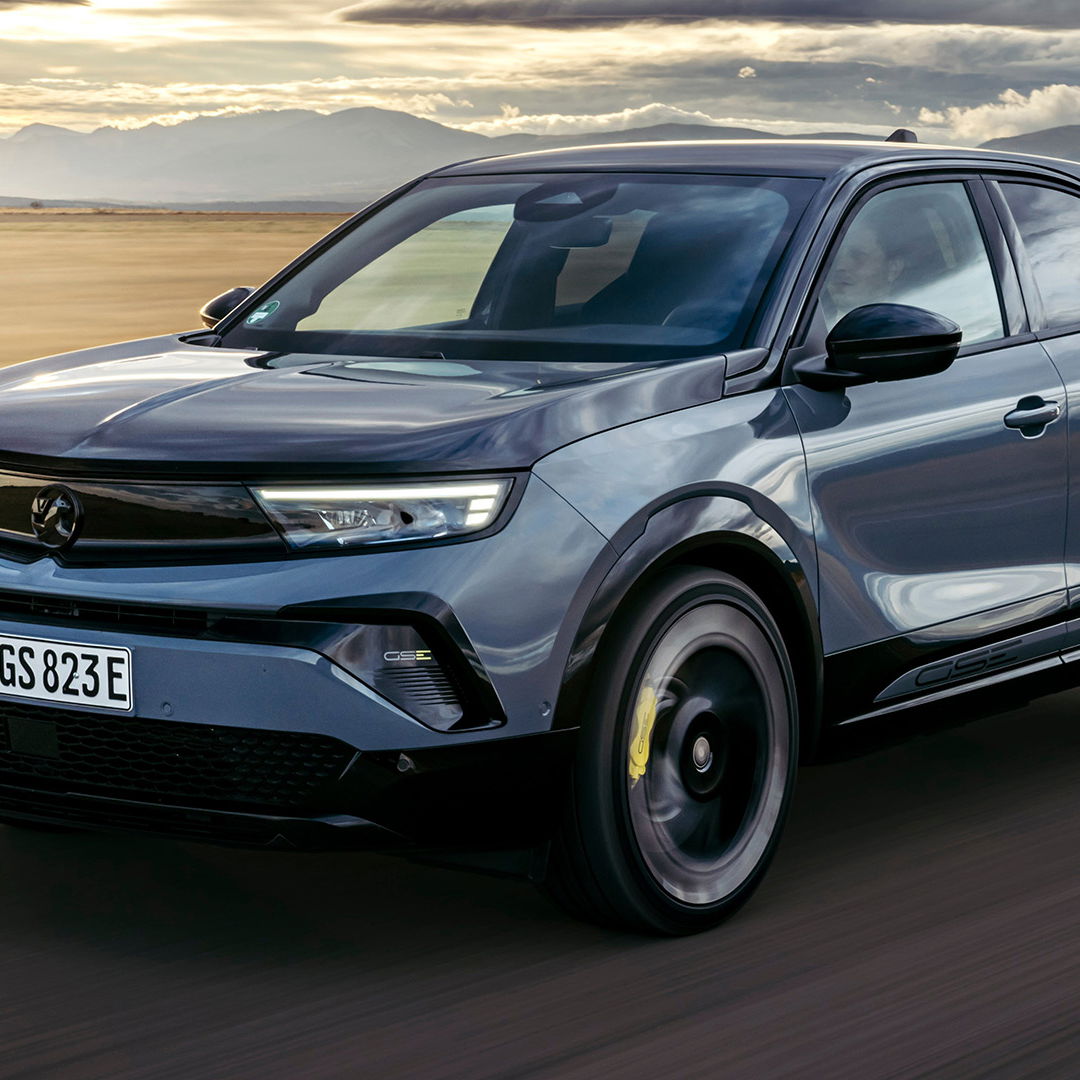

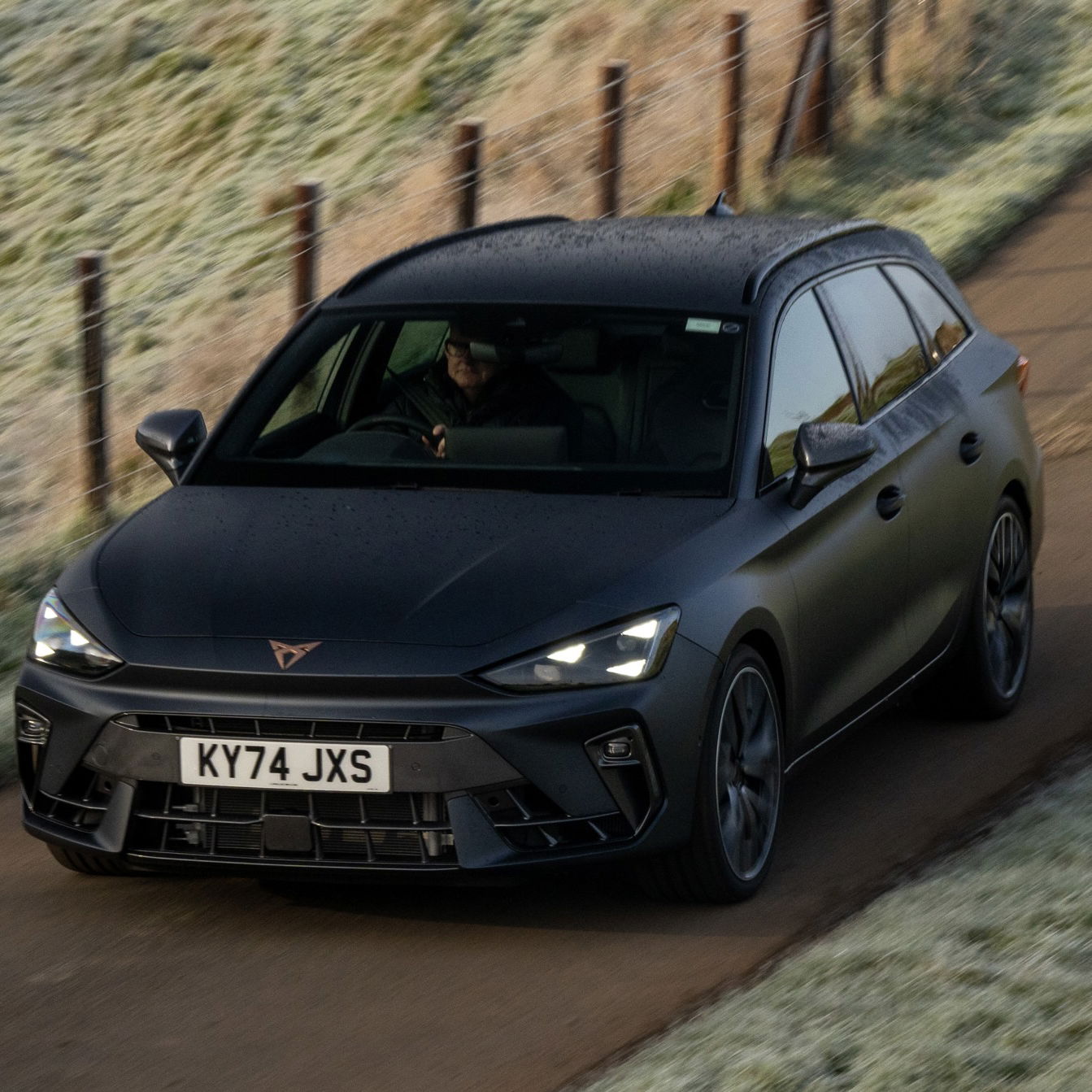



Comments